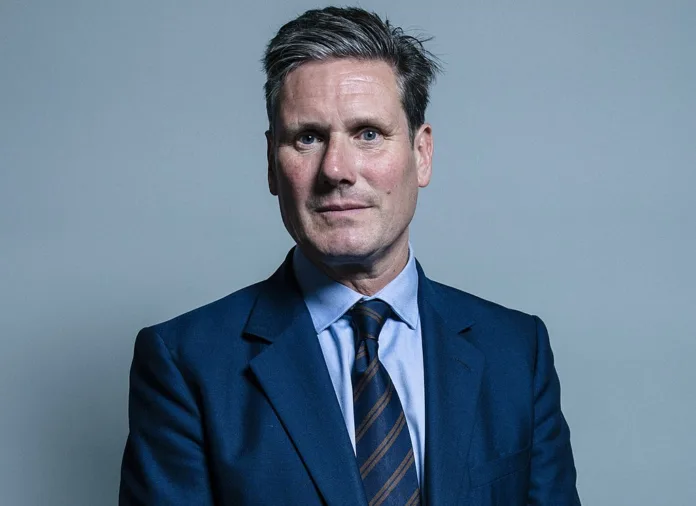Charities and MPs warn that without government action, larger families risk falling into poverty
In the UK, a staggering 1.6 million children are now impacted by the controversial two-child benefit cap, prompting renewed calls for the Labour government to take action. Introduced by the Conservative government in April 2017, this policy restricts parents from claiming child tax credit or Universal Credit for more than two children, leaving families without approximately £3,200 a year for each additional child.
Economist Lalitha Try from the Resolution Foundation emphasized that evidence shows the cap has not fulfilled its intended purpose of boosting employment but has undeniably led to financial hardship for families. She warned that if the policy remains in place, many children from larger families will likely fall below the poverty line by the end of the parliamentary term.
Embed from Getty ImagesRecent statistics reveal that of the 1.6 million affected children, 1.3 million live in households reliant on Universal Credit, which typically serves those with low or no income. The number of households impacted by the cap has surged from just 71,000 in its first month of implementation to a staggering 450,000 today.
Labour leader Sir Keir Starmer had previously expressed intentions to abolish the cap but reversed his stance last year, citing the difficult financial situation inherited from the Conservative government. His change of heart has faced backlash from various party members, including former Labour Prime Minister Gordon Brown, who condemned the cap for pushing children into poverty. Surprisingly, even former Conservative Home Secretary Suella Braverman has spoken out against the policy.
In response to the growing concern, Labour MP Kim Johnson urged Starmer to prioritize lifting the cap in the upcoming King’s Speech. Representing Liverpool Riverside, one of the most deprived constituencies in the country, Johnson highlighted the urgency of the situation, noting that nearly half of the children in her area live in poverty. She believes that removing the cap would be a cost-effective and impactful measure to alleviate child poverty across the UK.
Other political parties, including the Liberal Democrats, SNP, and Plaid Cymru, have also rallied for the cap’s abolition. Work and Pensions Secretary Liz Kendall stated that too many children are growing up in poverty, emphasizing the need for a comprehensive strategy to combat child poverty.
Under the current system, households receive £25.60 weekly for their first child and £16.95 for the second, with no financial support for any additional children. This structure not only disproportionately affects larger families but also presents challenges for those on the brink of financial stability, particularly if one parent’s earnings exceed £60,000.
As the political pressure mounts, the Labour government faces critical decisions that could shape the future of child welfare in the UK.
Analysis
Political Perspective
The two-child benefit cap has ignited a significant political debate in the UK, particularly within the Labour Party. Sir Keir Starmer’s initial commitment to scrapping the cap highlighted his awareness of child poverty issues, but his reversal reflects the complex financial landscape inherited from the Conservatives. This dilemma exemplifies the broader struggle within Labour to balance fiscal responsibility with social justice. With increasing pressure from both party members and external stakeholders, Starmer must navigate these competing interests carefully. The push from Gordon Brown and others suggests a potential rift within the party that could impact its unity and electoral prospects.
Social Perspective
This policy starkly illustrates the growing issue of child poverty in the UK. As more families fall below the poverty line, societal debates around welfare and support systems intensify. The rising number of affected children raises ethical questions about the government’s responsibility to its citizens. The experiences of families struggling under this cap resonate with many, fueling calls for systemic change. The discourse around child welfare becomes not only a political issue but a societal one, reflecting a collective concern for future generations.
Racial Perspective
The impact of the two-child benefit cap is not uniform across racial and ethnic groups. Families from minority backgrounds are disproportionately represented among those affected by poverty. This disparity highlights existing inequalities within the welfare system, raising questions about racial equity in government policies. Advocates argue that the policy exacerbates these inequities, and any reform must consider the diverse needs of all families to create a fair and inclusive support system.
Gender Perspective
The cap also has implications for gender equality, as women often bear the brunt of financial stress within families. The restriction on benefits can lead to increased pressure on mothers, many of whom manage household budgets. The policy raises questions about how government support—or the lack thereof—affects gender roles and responsibilities in parenting. Addressing child poverty effectively requires a gender-sensitive approach that acknowledges the unique challenges faced by women.
Economic Perspective
Economically, the two-child benefit cap limits families’ financial stability, particularly in low-income households. The Resolution Foundation’s findings underscore the cap’s failure to achieve its purported goals while demonstrating its detrimental impact on family finances. As poverty rates rise, the potential long-term economic consequences for the country become evident. A society with high levels of child poverty can expect future strains on public resources, healthcare, and education systems, making the abolition of the cap not only a moral imperative but an economic necessity.
